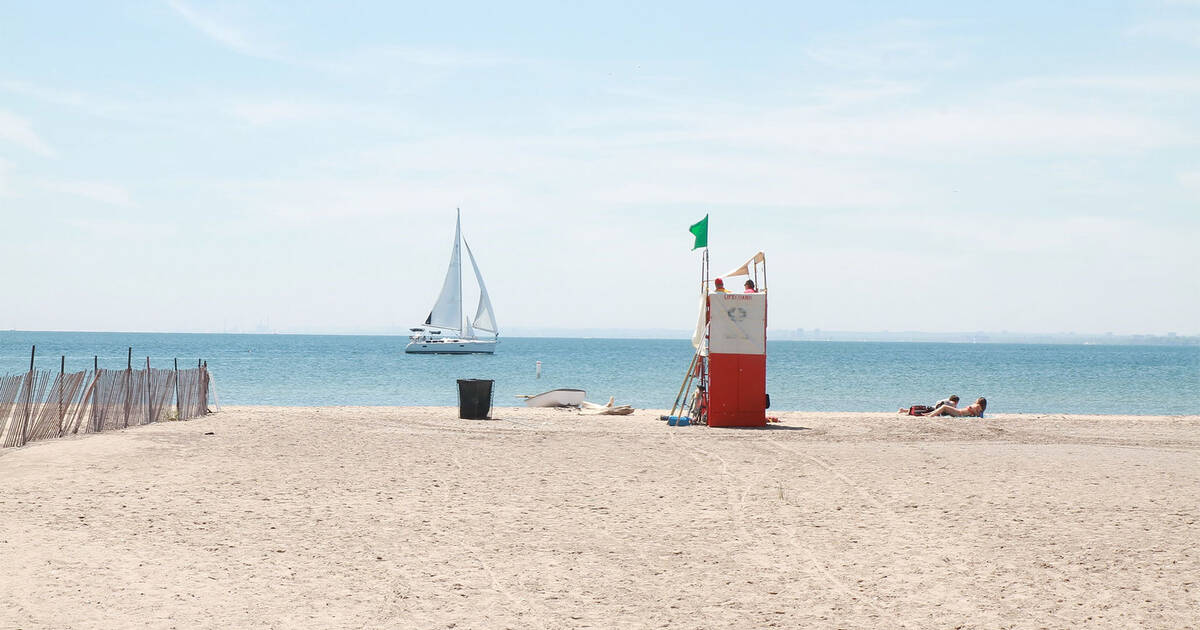
Ever been to a nude beach in Toronto? If the thought of being stark naked in front of another human being, who is not your partner or a member of your immediate family, makes you feel extremely uncomfortable, I feel you.
I went top-free for 30 seconds on a nude beach in France once, and it was exhilarating, but also kind of scary. Some people (like myself) are taught at a young age to cover up. Showing too much skin could be seen as an invitation for unwanted attention, advances or judgment.
As the bikini top came off easily that day, the feeling that I should be ashamed, or worried, came on strong.
Was everybody looking at me? Was I being judged? Objectified?
I wish I could go back to that place and time (not just because it was a fabulous trip), but because I would like to pat my younger self gently on the head, and tell her that, "literally no one cares."
What is it about being nude that can feel so overwhelmingly daunting for some, yet for others, it's no big deal? In fact, for many people, it's empowering.
That's where Greg Snow comes in. He's the president of the Federation of Canadian Naturists, a not-for-profit organization that promotes the naked lifestyle, and says that it has done wonders for his confidence.
Snow has also been a permanent resident at Bare Oaks for more than a decade. The family-friendly naturist park, that was the setting of a Brendan Canning music video four years ago, is located just north of Newmarket.
The gymno-camp has been open since the 70s (though there was a 17-year stretch of non-nude use, from 1984 to 2001).
Aside from Bare Oaks, (and events like the World Naked Bike Ride, or the Pride Parade) there aren't many public places in the GTA where it is deemed appropriate to don only your birthday suit.
Of course, there's Ponderosa Nature Park, but that's north of Hamilton, and the Toronto Islands does have the "clothing optional" Hanlan's Point Beach, if you don't mind a sandy bottom and the occasional "lookie-loo."
Since the beginning of the pandemic, Snow says that he’s seen an increased interest in the naturist lifestyle, and stats around the world support this. Could it be that more people are shedding their cares, along with their clothes?
Or perhaps they're in it for the health benefits?
According to the Fédération des Espaces Naturistes, being naked in nature helps you sleep better, it's a great way to boost your levels of vitamin D, and it actually lowers the chances of infections and the spread of germs.
There's also the element of letting go, while simultaneously embracing, and celebrating our naked bods.
Listen to Season 2, Episode 3 of the blogTO podcast
If you've ever been even the least bit curious about naturism, which is slightly different than nudism, Greg Snow talks about the misconceptions and benefits of being nude, and why as a first-timer he wouldn’t go to Hanlan’s Point to de-robe.
Just don’t forget your towel, and mask!
Guide to this podcast
- 1:00 The biggest misconception about naturist parks
- 1:26 The tenets of naturism
- 2:28 How does one get into naturism?
- 3:35 Don't forget your wife
- 4:01 What the first time was like
- 4:40 Feeling empowered in the nude
- 5:00 The difference between naturism and nudism
- 6:50 Arriving at Bare Oaks
- 7:15 Why you might "need" to be dressed at a nude park
- 8:37 The two big worries about being naked in front of others
- 9:08 Men are afraid they'll have erections all the time
- 9:45 Has there been an increased interest in naturism since the start of the pandemic?
- 10:14 Naturist parks closest to Toronto
- 10:46 How to tell if someone is a newbie
- 11:11 What would you tell someone thinking about getting into naturism?
- 12:12 The importance of having spaces for people to explore naturism
- 13:00 The issue with "clothing optional" beaches like Hanlan's Point Beach
- 14:40 What are the rules surrounding being naked in public?
- 16:52 Clothed campgrounds are called "textile"
Subscribe to the blogTO podcast
by Dani Stover via blogTO

No comments:
Post a Comment